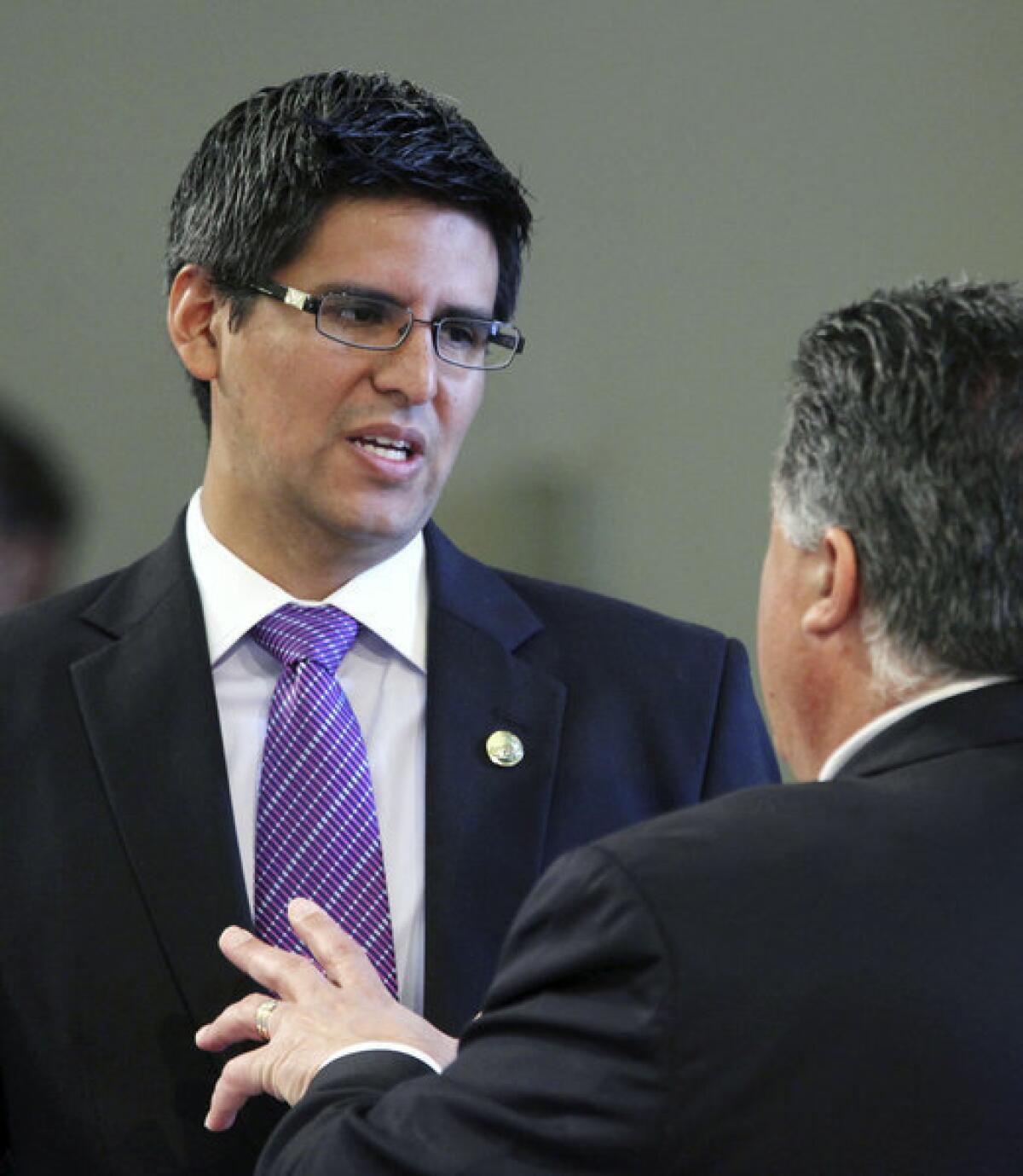Pro athletes who shop for workers’ comp

In recent years, California has become a favorite venue for workers’ compensation claims by athletes with only tenuous ties to the Golden State. Many former pros have won six-figure awards for injuries built up over time even though they’ve never lived or worked in the state, except to train or play the occasional game here. In some cases, judges have even granted them awards over and above the ones they’ve already obtained in their home states.
Clearly the system needs to be fixed, and five professional sports leagues have stepped forward to say so. But lawmakers shouldn’t close the courthouse door completely to athletes who don’t feel the brunt of their injuries until long after their playing days are over.
States created workers’ compensation systems as an alternative to lawsuits, one that delivers aid faster to injured workers and gives employers more certainty about liabilities. California’s system, like most states’, provides workers who sustain permanent disabilities on the job a standardized benefit based on their age, profession and the extent of their injuries.
Most states recognize claims for disabilities that result not just from a specific injury but also from “cumulative trauma” sustained over many years. What makes California unusual, though, is that it allows such claims even from those who perform minimal work in the state or for its employers. It also accepts claims from out-of-state athletes long after the one-year statute of limitations cuts off most in-state players. Former tight end Ernie Conwell won $160,000 plus future medical benefits in California after collecting $181,000 in Louisiana and $195,000 from the NFL. Conwell never played a down for a California team.
Some defenders of the system argue that it holds deep-pocketed teams and leagues responsible for the physical toll they exact on their players. Taxpayers are not on the hook; instead, the workers’ comp bill falls on a team or its insurer.
But that doesn’t mean Californians are completely unaffected by the pros’ claims. State law requires the full amount of a claim to be paid by the last employer under the state courts’ jurisdiction, which isn’t necessarily the employer most responsible for the injuries. If a pitcher spends a year with the Dodgers before putting in 10 seasons with minor league teams that don’t set foot in California, that player’s cumulative trauma claim would have to be paid by the Dodgers. In addition, if a team’s insurer goes bankrupt, its players’ awards are paid for through surcharges on all California employers’ workers’ comp insurance policies. The number of claims by pro athletes on bankrupt insurers have skyrocketed from less than 50 in 2006 to roughly 400 in 2012, costing all employers more than $70 million so far.
Last week the Assembly passed a bill by Assemblyman Henry T. Perea (D-Fresno) that would bar workers’ comp claims by out-of-state professional football, basketball, baseball, hockey and soccer players. Athletes traded by a California team to an out-of-state ball club would have only one year to file a cumulative trauma claim in California unless they had played most of their careers here, in which case they’d have a year from the date their disability was diagnosed.
With the 2010 healthcare law soon to provide insurance subsidies and guarantee coverage for people with preexisting conditions, disabled athletes won’t need to win a disability award in California to make sure their healthcare costs are covered. Still, the Legislature shouldn’t have to get in the middle of this fight; the leagues and the players unions should resolve their differences through their collective bargaining agreements. Ideally, they’d carve themselves out of the patchwork of state workers’ comp systems and establish a national alternative that treats all players equally.
Until that day arrives, however, California’s system shouldn’t serve as the venue of second resort for out-of-state players who can bring cumulative trauma claims in their own states. The ban in Perea’s bill ignores the fact that some states do not countenance cumulative trauma claims by athletes, and in that sense it’s too broad. But so too does current law give too great an opportunity for pro athletes with little or no connection to the state to make their claims here.
More to Read
A cure for the common opinion
Get thought-provoking perspectives with our weekly newsletter.
You may occasionally receive promotional content from the Los Angeles Times.










